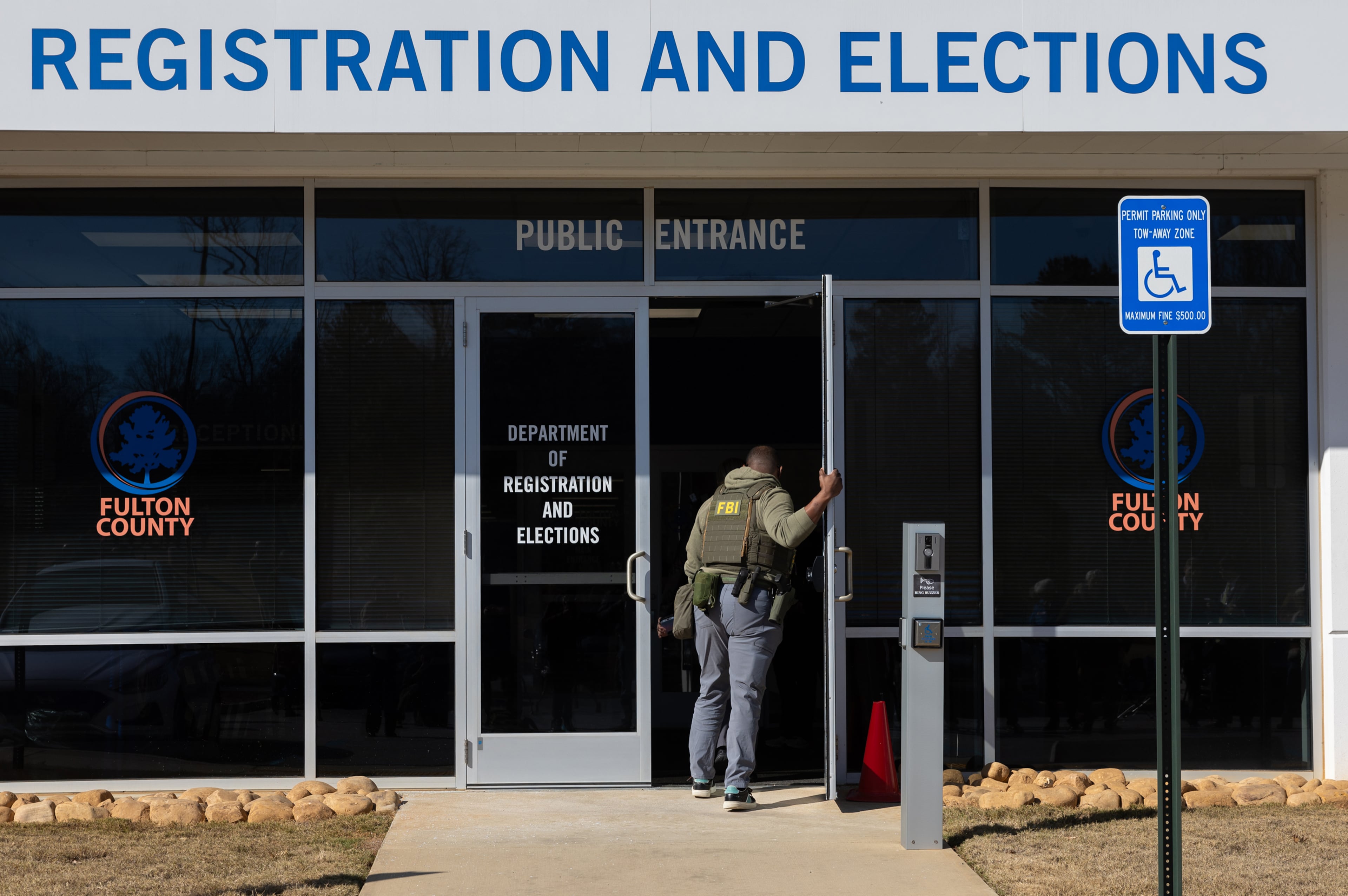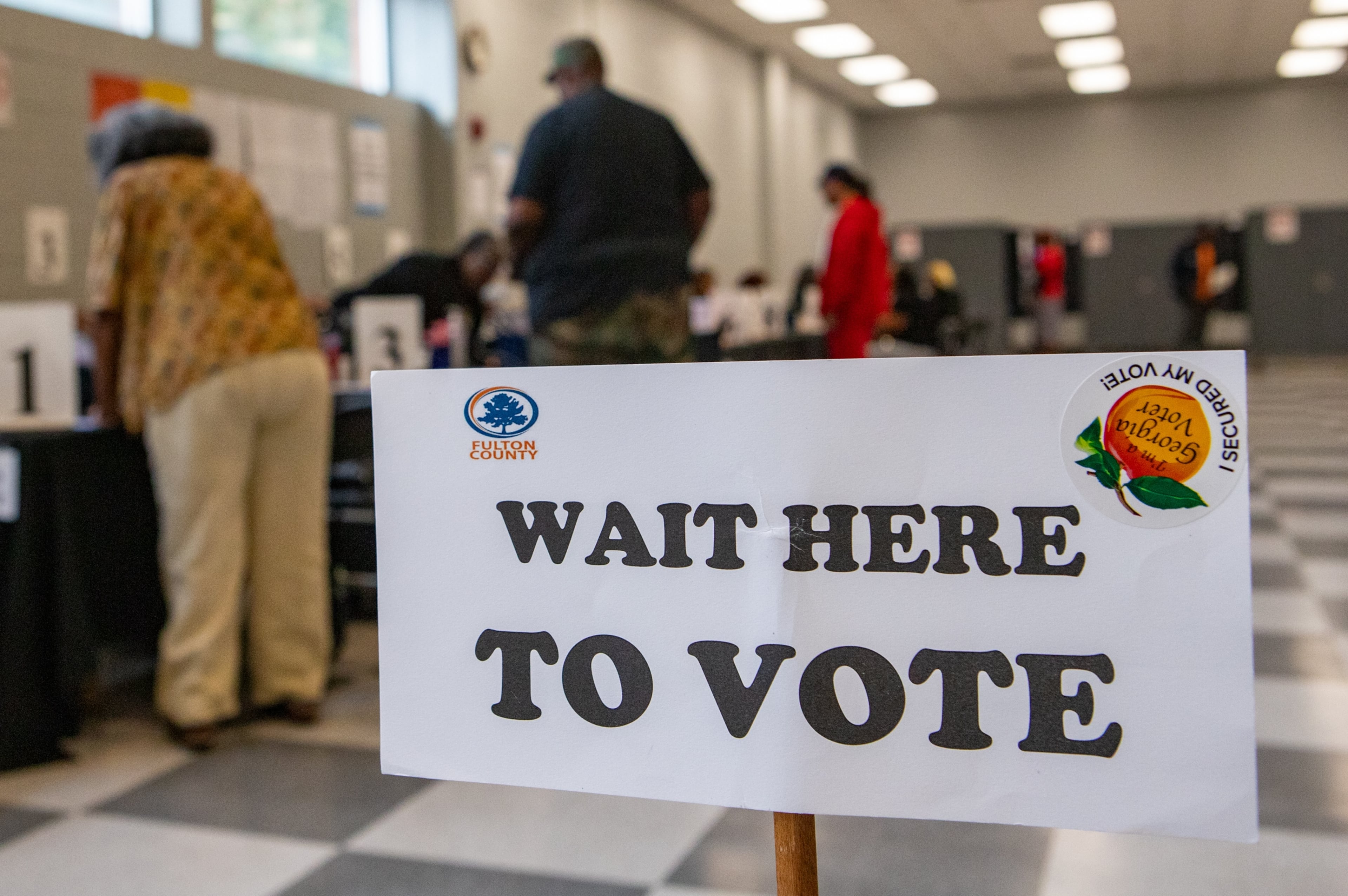Judge strikes down Georgia’s abortion ban

Georgia can no longer enforce its ban on abortion that took effect in 2022, a Fulton County judge said Monday, allowing the procedure again to be performed after a doctor detects fetal cardiac activity.
Fulton County Superior Judge Robert McBurney issued an order Monday that said abortions must be regulated as they were before Georgia’s 2019 law took effect in July 2022 — meaning the procedure is again allowed up until about 22 weeks of pregnancy.
A spokeswoman with the attorney general’s office said the state plans to appeal.
“A review of our higher courts’ interpretations of ‘liberty’ demonstrates that liberty in Georgia includes in its meaning, in its protections, and in its bundle of rights the power of a woman to control her own body, to decide what happens to it and in it, and to reject state interference with her health care choices,” McBurney ruled. “That power is not, however, unlimited. When a fetus growing inside a woman reaches viability, when society can assume care and responsibility for that separate life, then — and only then — may society intervene.”
Georgia’s law, referred to by supporters as the “heartbeat bill” and by opponents as the “six-week ban,” prohibits abortions in most instances once a doctor can detect fetal cardiac activity, typically about six weeks into a pregnancy and before many know they are pregnant.
The SisterSong Women of Color Reproductive Justice Collective and other abortion rights groups and providers sued Georgia in 2019 in federal court after the Legislature passed the law.
The U.S. Supreme Court’s 2022 decision in Dobbs v. Jackson Women’s Health Organization overturned Roe v. Wade, the 1973 ruling that guaranteed a nationwide right to abortion until a fetus is viable to live on its own, paving the way for Georgia’s law to take effect.
Mike Griffin of the Georgia Baptist Mission Board, who lobbied in support of Georgia’s law, said McBurney’s order gives the appearance of “legislating from the bench.”
“A lot of what we saw in those early years 50 years ago (when Roe v. Wade was decided) was a lot of things were being done judicially because they thought it couldn’t be done legislatively,” Griffin said.
Once Roe v. Wade was overturned, SisterSong and many of the other groups sued Georgia in Fulton County Superior Court, citing the state’s constitution, which some legal experts have said grants more expansive rights to privacy than the U.S. Constitution.
The ruling comes after the state Supreme Court last year reversed a 2022 ruling from McBurney in which he said the 2019 law had been passed illegally since Roe v. Wade was the law of the land at the time.
That sent the case back to McBurney, who then was asked to rule on the constitutionality of the law. On Monday, he ruled that the law was unconstitutional.
“While the state’s interest in protecting ‘unborn’ life is compelling, until that life can be sustained by the state — and not solely by the woman compelled by the act to do the state’s work — the balance of rights favors the woman,” McBurney wrote.
Claire Bartlett, executive director of the anti-abortion Georgia Life Alliance, said she was disappointed by the ruling, but she wasn’t shocked.
“It’s not particularly surprising that a liberal, pro-abortion judge would attempt to create a right to abortion (from the state constitution) out of an enumerated right that isn’t there,” she said. “To me, it’s ironic that he’s basing his decision on Georgia’s constitutional right to life, liberty and property ... and focusing only on a women’s right to liberty versus a child’s right to life.”
SisterSong Executive Director Monica Simpson said McBurney’s ruling on Monday allowed her and other reproductive rights activists to “take a breath” after playing defense for the past five years.
“We still know there is a strong possibility this will not last very long,” Simpson said. “We’ve seen how this looks before, unfortunately. But in the meantime, we are going to put out to the public that this is going to be life-changing for patients to get care, and we’ll fight for them to get as much access for as long as we can.”
Georgia’s abortion law was struck down in 2022 for eight days, when McBurney ordered the state to stop enforcing the restrictions in his initial ruling.
The state appealed that ruling to the state Supreme Court, which decided to allow the law to remain on the books while the case worked its way through the legal system.
Supporters expect something similar to happen this time around. Once the state appeals the ruling, it will go to the state Supreme Court for its consideration.
McBurney’s ruling also comes two weeks after the nonprofit news organization ProPublica first reported that two Georgia women died from abortion-related complications in the months after the law took effect in 2022.
“In this post-Dobbs-decision world, in this post-ProPublica (report) world that has made it clear that people are dying — that these two Black women’s deaths caused by this abortion law could have been prevented,” Simpson said.


